’Kartell: The Culture of Plastics’, published by Taschen
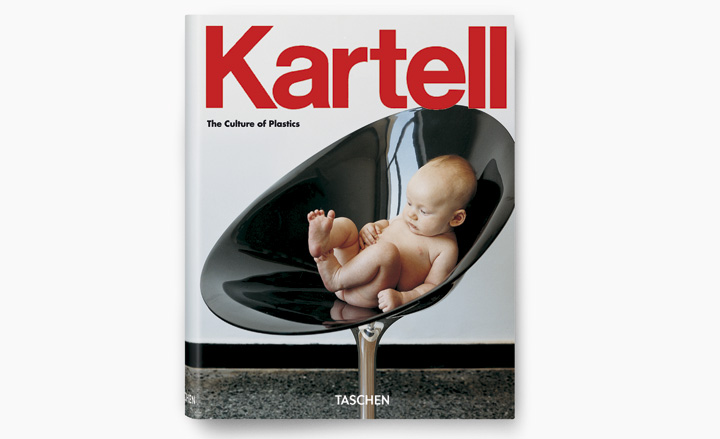
Receive our daily digest of inspiration, escapism and design stories from around the world direct to your inbox.
You are now subscribed
Your newsletter sign-up was successful
Want to add more newsletters?

Daily (Mon-Sun)
Daily Digest
Sign up for global news and reviews, a Wallpaper* take on architecture, design, art & culture, fashion & beauty, travel, tech, watches & jewellery and more.

Monthly, coming soon
The Rundown
A design-minded take on the world of style from Wallpaper* fashion features editor Jack Moss, from global runway shows to insider news and emerging trends.

Monthly, coming soon
The Design File
A closer look at the people and places shaping design, from inspiring interiors to exceptional products, in an expert edit by Wallpaper* global design director Hugo Macdonald.
The Kartell Museum in Milan, home to 60 years' worth of plastic icons from Italian furniture brand Kartell, was the obvious setting for last week's launch of 'Kartell: The Culture of Plastics', a new 400-page monograph chronicling the brand's rise and rise. Edited by Bauhaus University professor Hans Werner Holzwarth and Kartell Museum curator Elisa Storace, the book analyses the brand's remarkable history, illustrated by archival shots of the bestsellers of the era.
It will be published by Taschen in two editions - one in Italian, Spanish and Portuguese, the second in English, French and German - on 1 March.
Kartell's early success followed some spot-on decisions by founder Giulio Castelli, a former chemical engineer, and his wager that the future of furniture design would hinge on candy-coloured moulded-plastic furniture. Castelli's instincts and faith in the material were paramount, as was his knack for hiring top Italian industrial designers like Ettore Sottsass, Pier and Achille Castiglione and Joe Colombo.
By the time Dustin Hoffman heard that oft-mimicked line in 'The Graduate' - 'Just one word: plastics' - Kartell had already been in the business nearly 20 years. Soon after, Kartell launched its Componibili range of cylindrical storage tubs, now ubiquitous in bedrooms, bathrooms, offices and kitchens across 60 countries.
To spotlight this and other Kartell successes, current CEO Claudio Luti invited some of Europe's most distinguished designers and curators to contribute their thoughts to the Kartell tome. A dedication by Franca Sozzani precedes chapters by Deyan Sudjic and Marie-Laure Jousset, among others, who provide context to the iconic back catalogue and justification for the brand's survival. It can't be summed up in one word but rather an endless list of names (Philippe Starck, Vico Magistretti, Antonio Citterio, Tokujin Yoshioka…) responsible for an endless run of instant classics.
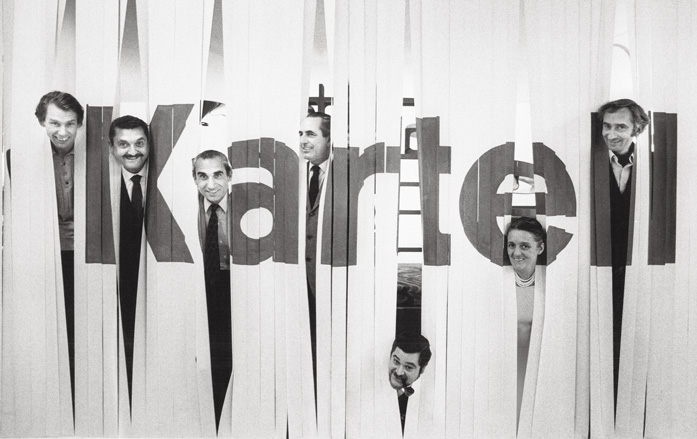
The book is illustrated with images from the brand's archives. Pictured is the Kartell design team at Salone del Mobile in 1969. From left: Olaf von Bohr, Gino Colombini, Alberto Rosselli, Ignazio Gardella, Joe Colombo, Anna Castelli Ferrieri and Giotto Stoppino.

The 'Universale' chair, designed by Joe Colombo in the 1960s, in production
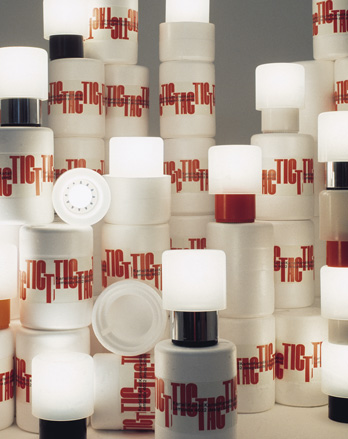
Also on the book's pages are best-selling designs from different decades, including the 'Tic Tac 4032' desk lamp and packaging by Giotto Stoppino, 1970. Its onomatopoeic name refers to the noise produced when turned on and off. In lieu of a traditional lamp switch, it is activated by applying pressure directly on lampshade
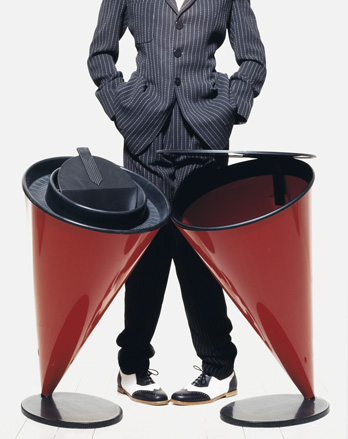
'4745/4751' litter bins by Angelo Cortesi and Franco Scansetti, 1989
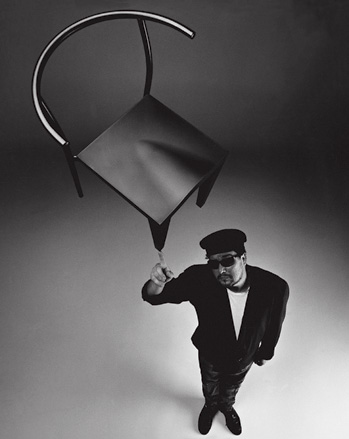
Philippe Starck with his 'Dr Glob' chair, designed in 1988
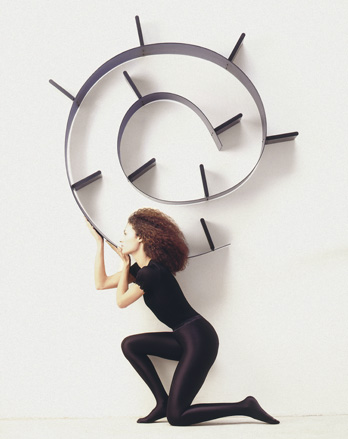
'Bookworm' bookcase by Ron Arad, 1994
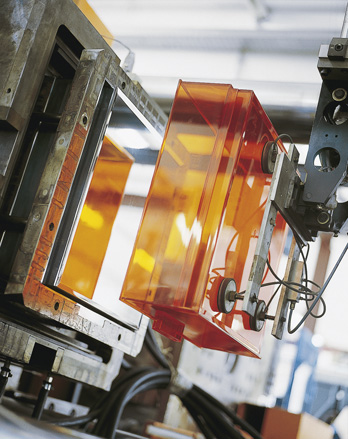
A drawer for the 'Mobil' storage unit, 1995, being extracted from its mold. Kartell has been using injection molding since the fifties for the production of drawers
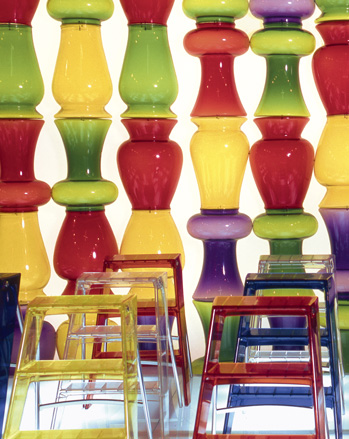
'La Bohème' stools-cum-pots by Philippe Starck, 2001, and 'Upper' ladders by Alberto Meda and Paolo Rizzato, 2000, on display at IMM Cologne 2002
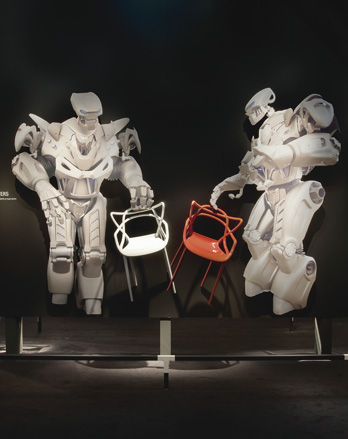
Two robots present the 'Masters' chairs, designed by Philippe Starck, in the Kartell booth at Salone del Mobile 2009, accentuating their futuristic design
Receive our daily digest of inspiration, escapism and design stories from around the world direct to your inbox.
Based in London, Ellen Himelfarb travels widely for her reports on architecture and design. Her words appear in The Times, The Telegraph, The World of Interiors, and The Globe and Mail in her native Canada. She has worked with Wallpaper* since 2006.